If you relapse during addiction recovery, it’s not the end of the recovery journey. It’s just a step off the path. Relapse happens to about 30% of recovering addicts.
What is a Relapse in Addiction Recovery?
To understand relapse in addiction recovery, it’s important to start by remembering that addiction is a chronic disease and relapse may be an ongoing part of that for many people. Relapsing in addiction recovery is when the individual in recovery begins using or seriously thinking about using again.
A relapse is a full return to problematic thought processes and behaviors. This may or may not mean returning to the same substances used before, and in many cases, an individual who relapses may not relapse to the same substance as before. Relapsing is the reappearance of the behaviors that created the addiction, often creating another in the process.
Why Does Relapse Happen?
Intensely powerful cravings for alcohol and other drugs are common in addiction. You could find yourself craving alcohol weeks, months, or even years after your last drink. Some of these urges may be random, but many will come from the triggers you experience in your daily life.
It is important to remember that addiction is often a coping mechanism for those with underlying mental health issues or stressors in their lives that they don’t know how to deal with in a healthy way. For many people, relapsing is the result of no longer being emotionally invested in their recovery or treatment program.
There is no cure for addiction, and while different types of treatment programs can help patients develop the emotional toolkits they need to help forge a resilient recovery, every recovery journey is different. By taking things one day at a time and learning healthy ways to respond to stress and triggers, rates of relapse can be lowered dramatically.
Stages of a Relapse
Relapse isn’t a single event. It is an ongoing process that occurs in predictable and identifiable stages. Only in the final stage of the relapse does the individual begin using the substance again and stop active recovery efforts. To stand the best chance at being able to prevent a relapse, it’s important to understand each stage and the potential signs or indications that someone is in that stage.
Emotional
During an emotional relapse, the individual isn’t focused on or thinking about using, but they aren’t actively focused on their recovery and emotional health. In this early stage of relapse, the individual isn’t using the substance and is still maintaining sobriety, but they are only following the rules of recovery, not the spirit.
In this stage, people are going through the motions, attending their 12-step groups and other support groups, and any required treatment appointments, but they aren’t sharing or speaking at meetings, they aren’t opening up about their recovery, and are often in denial of emotional issues.
Mental
Mental relapse is when you’ve started thinking about or even seriously considering going back to your addictive thoughts and behaviors. To many people, this is considered daydreaming about using and is nearly as serious as actually using. Many people in inpatient treatment who cannot physically relapse will begin to mentally relapse, which puts them at extreme risk of relapse upon release if nothing changes before then.
If the signs of mental relapse can be seen sooner, the rates of relapse would be dramatically lower. These signs can include:
- Cravings and urges to use again
- Looking back on drug use with fondness or reminiscing about using
- Thinking about places or people that were part of your usage
- Lying about going to meetings
- Thinking about how to use without getting caught
Physical
Physical relapse is the stage that many people often associate with relapsing, and what many people may call a “true” or a “full” relapse. In reality, it’s merely the final stage in the relapse process, and if the individual or those close to them can recognize the signs of emotional or mental relapse, a full physical relapse can be prevented in many cases.
Physical relapse is beginning to use drugs or alcohol again and stopping all forward progress in the recovery process. It isn’t a single, isolated use of the substance at a party or similar situation, with recovery resuming normally after the “slip”, this is known as a lapse. A relapse is when the use isn’t isolated and continues instead of stopping immediately to the resumption of recovery activities.
Is it Normal to Relapse?
Relapse is an incredibly common factor across many different recovery processes. Depending on the source and the specifics, the total rates of relapse across all individuals can be anywhere from 40% to 60%. This makes relapse a very common feature in the recovery of millions of individuals.
That said, active participation in a 12-step support group and working the steps with a sponsor can increase the chances for long-term recovery and lessen the incidences of relapse. Studies show a strong correlation between the level and length of involvement in a 12-step program like AA or NA and long-term sobriety. For example, those who attended 60-200 meetings a year for a period of 5 years had an abstinence rate of 73-79%.
This means the best way to prevent relapse is to find a Long Island rehab and begin or continue treatment as soon as possible, and maintain a level of emotional investment and overall commitment to it. You aren’t just committing to being sober, you’re committing to a brighter future.
I Relapsed, Now What?
The first thing to do after a full relapse is to find a Long Island rehab facility so that you can detox and get back on the road to recovery. One of the upsides to already having gone through detox during the recovery process is that you’ll know what to expect.
The downside to this is that if someone had an unpleasant time during detox and acute withdrawals initially, they may be less inclined to endure it again. This is why it’s important to remember that using professional treatment options means the safest and most comfortable detox possible.


